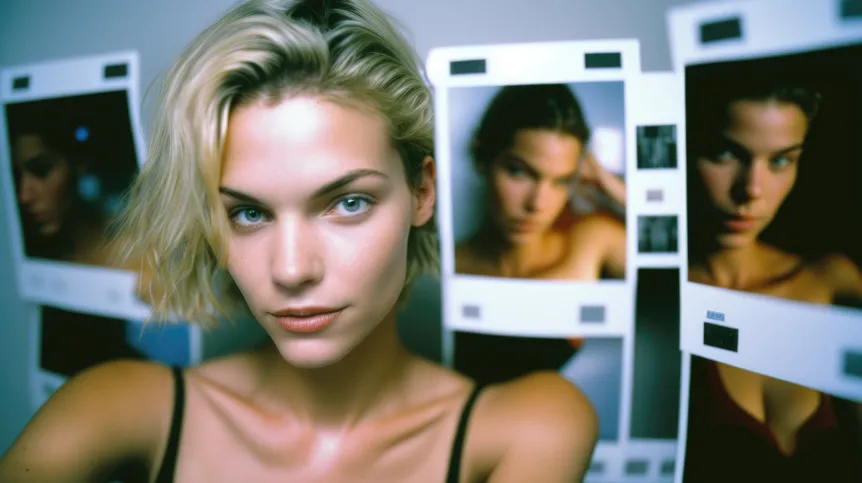
Virtual influencers are fictional, generated characters that imitate the appearance and behaviour of real people. They have millions of followers. They are perceived by Gen-Alpha as even more authentic than real people, which creates many challenges, says Dr. Ada Florentyna Pawlak.
She reports that as many as 25 percent of girls in the 18-24 age group follow virtual influencers. In the 55+ group, on the other hand, most people do not even know that this phenomenon exists.
Most virtual influencers have been created for marketing purposes; their purpose is to earn money. However, we must not forget about their other, more or less hidden goals, e.g. political or social ones. After all, they perform opinion-forming functions, as the name 'influencer' suggests.
The first virtual influencer, Lil Miquela, was created in 2016. She - and other such characters - 'run' social media profiles, 'record' albums that are available on popular platforms, and 'take part' in advertisements for real brands or promotions of places. Whole teams of people are behind these activities - from programmers and graphic designers to storytellers.
'Thanks to the development of generative artificial intelligence, we increasingly interact with characters with an unclear ontological status. After all, for many people, virtual characters are alive, despite the lack of a biological body: they exist in some world, they are active, they earn money, they interact, they can answer questions. This creates an emotional bond that is enough to influence a person', the researcher says.
By design, virtual influencers are supposed to be imperfect like people. 'They have all the physical attributes that human influencers try to avoid: freckles, smudged makeup, hair sticking out in the morning, sweat on their forehead. In addition, they do not hide that they are digital characters. This means that they are perceived as authentic by Gen Alpha - even more so than those real influencers who often use various types of tools to improve their appearance and strive for the ideal', she says.
She added that this is where a deeper problem begins. 'Authenticity is separated from whether something is real or not. It turns out that it can be attributed to something that does not exist. We still have a division between fiction and reality, because the offline-online division has long since collapsed. Now, the division between the living and non-living is also beginning to blur. That is why future generations will certainly face the problem of distinguishing truth from falsehood, reality from illusion', she says.
The problem will not disappear, on the contrary - the development of technology and artificial intelligence is inevitable. Moreover, with the arrival of 2025, the next generation- Beta - will be born, even more immersed in the digital world and in a sense addicted to the dose of emotions that is associated with it.
According to Dr. Pawlak, one of the advantages of virtual influencers is that they accept their recipients as they are. 'In the right thumb (like) culture in which we live, the possibility of not being judged seems like a dream. The creators of artificial intelligence know this very well. That is why they create virtual influencers', she says.
She adds that contact with virtual influencers raises questions: how does the development of technology affect intimacy? Will new forms of parasocial relationships (with chatbots, virtual influencers) be the answer to loneliness and the need for closeness?
Dr. Pawlak also mentions a fairly new, developing trend, in which virtual influencers are used to 'pull' people out of the online world, e.g. by connecting users who will go out for dinner together, or by promoting real places worth visiting.
'I compare the achievements of artificial intelligence to fast food. If I eat a hamburger every once in a while, I know that nothing will happen to me. But if I make it a habit, then after a short while my psychological and physical well-being will deteriorate. There are already scientific studies that have shown that lonely people who spend too much time with a synthetic companion begin to anthropomorphize this character at some point, and really treat it as a human being', she says.
She adds that technology itself is neither bad nor good, nor even neutral. 'It all depends on the usage - on how we will use these tools, as well as on our entire emotional and social background, the protective +digital suit+’ she says. (PAP)
PAP - Science in Poland, Agnieszka Kliks-Pudlik
akp/ bar/ kap/
tr. RL













